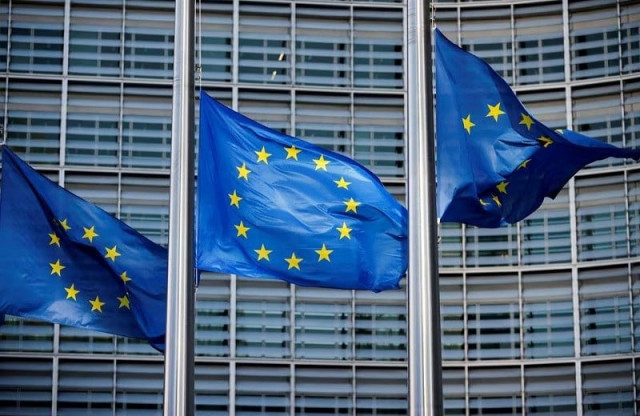EU endorses €650 billion plan for cities to achieve net zero by 2030
A group of 112 cities aiming to eliminate their net greenhouse gas emissions by 2030 will need 650 billion euros

A group of 112 cities aiming to eliminate their net greenhouse gas emissions by 2030 will need a combined 650 billion euros ($695.83 billion) in investments to deliver the pledge, a European Union initiative said on Wednesday.
Part of the EU's "100 Climate Neutral and Smart Cities' Mission", the cities' net-zero emissions goal is more ambitious than that of most governments, with the 27-country EU and Britain both setting a 2050 deadline.
After 377 cities applied to join the programme, 100 from the bloc and 12 from associated countries were chosen and are developing a climate plan with support from the EU and non-profit advisory firm Bankers without Boundaries (BwB).
That plan is then turned into an investment blueprint assessed by the European Commission and independent experts before the city is given a label to affirm the fact.
To date, 33 cities have had their plans signed off, including Lyon, Seville, Malmo, Lisbon and Florence, with more expected to be approved in October. Projects could include retrofitting buildings to be more energy-efficient and adapting infrastructure to withstand more extreme weather events.
Read: Most nations get low marks on 'net-zero' climate plans
"Historically, cities have not been significant partners for the private sector, but progress can be much faster if private capital is more involved," said Allison Lobb, executive director of Bankers without Boundaries.
To help raise the cash, the EU on Wednesday launched a "Climate City Capital Hub" that will leverage guarantees by national governments to attract private finance, and group small projects that would usually struggle to access funding individually.
The public and private funding could take multiple forms, including setting up local investment funds or issuing bonds to fund certain projects. BwB said nearly 50 investors had already shown interest in investing once the pipeline is ready.
The European Investment Bank is set to collaborate with the hub to provide financial and technical advice to cities to help them implement their respective plans.
"EIB provides over a quarter of our lending to cities, and as Europe’s climate bank we are keen to work with cities to help them implement their climate-neutrality investments," said EIB Vice President Teresa Czerwinska.
Cities are a major contributor to climate change, producing 70% of the world's CO2 emissions, according to the International Energy Agency, ranging from industries and energy consumption in buildings to fossil fuel-based transport systems.
People living in cities are also highly exposed to climate change. Nearly half of Europe's city schools and hospitals are located in urban "heat islands", where dense clusters of buildings and roads absorb heat and hike temperatures more than in green areas, putting vulnerable people at greater risk of death from heat stress.

















COMMENTS
Comments are moderated and generally will be posted if they are on-topic and not abusive.
For more information, please see our Comments FAQ